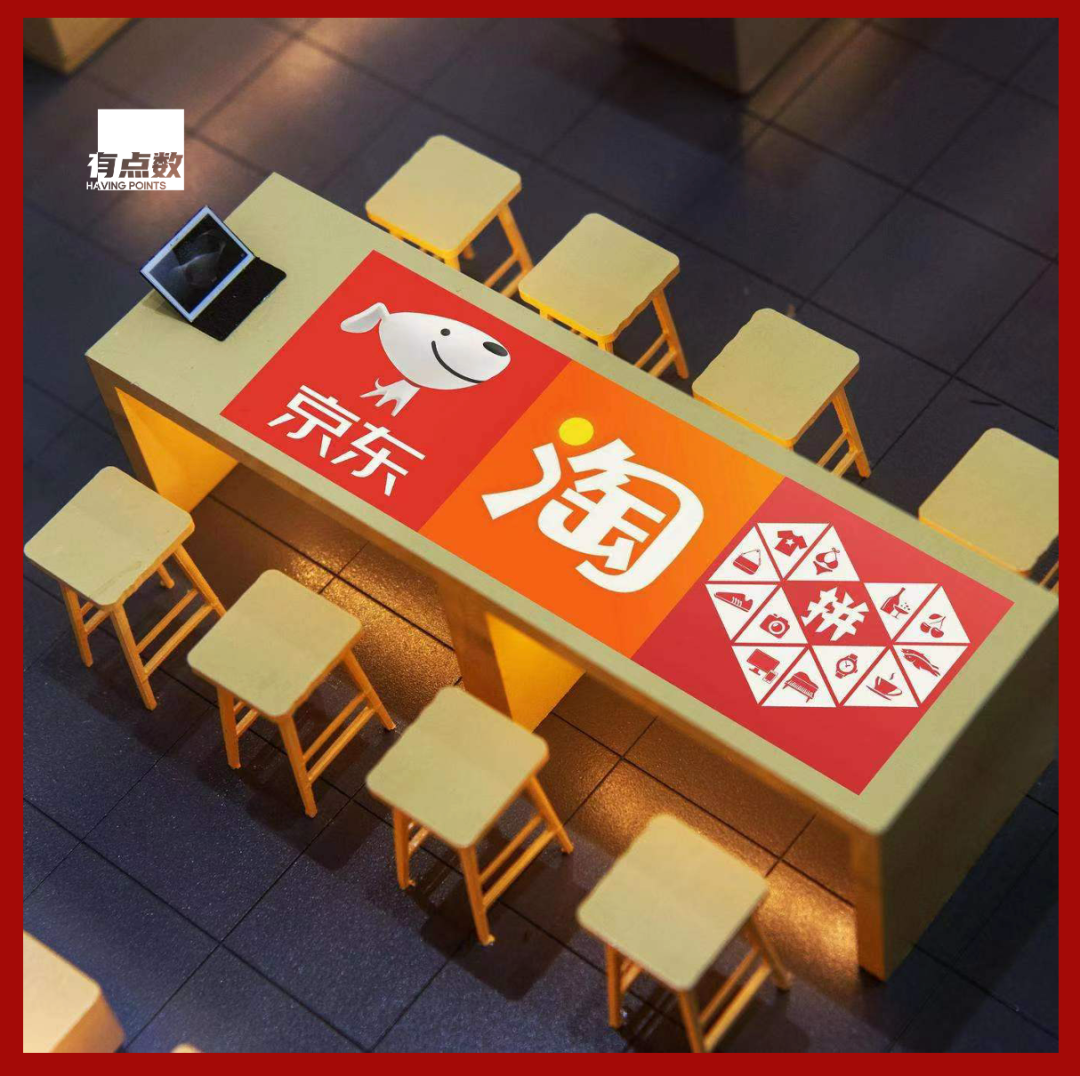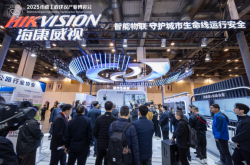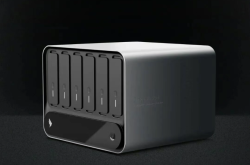The hundreds of billions cake of 'trade-in' has ignited competition among e-commerce platforms again
![]() 11/11 2024
11/11 2024
![]() 686
686

Original by Youdianshu · Digital Economy Studio
Author | Youshu
WeChat ID | yds_sh
As the Double 11 shopping festival enters its 16th year, it is being described as the 'earliest', 'longest', and 'most open' in history, with less emphasis on discounting and promotional battles. Amid policies aimed at boosting consumption and promoting the 'trade-in' initiative, internet giants like JD.com, Alibaba, and Tencent are breaking down barriers. This year's Double 11 ushers in new changes and opportunities.
01
Policies continue to intensify, with over RMB 10 billion invested in 'additional subsidies'
"I was getting a bit numb to Double 11 and didn't plan to buy anything, but my elderly family member told me about the government's trade-in policy subsidies. Buying household appliances now is a good deal, so I decided to replace our old fridge." Mr. Feng, an office worker, checked on an e-commerce platform and found that after combining national policy subsidies with platform subsidies, a new fridge could be purchased for nearly RMB 800 cheaper. He promptly placed an order and felt the 'power' of the national trade-in subsidies.
As early as March this year, the State Council issued the "Action Plan for Promoting Large-scale Equipment Upgrading and Consumer Goods Trade-in and Recycling," proposing four major initiatives including trade-ins and recycling of consumer goods. Data released by the Ministry of Commerce shows that in the first half of the year, digital goods, service consumption, and trade-ins became new growth points in China, with significant increases in trade-ins of refrigerators, washing machines, mobile phones, and televisions on major e-commerce platforms.
In August, national policies continued to intensify, with the Ministry of Commerce and three other departments issuing the "Notice on Further Improving the Home Appliance Trade-in Program." This provided trade-in subsidies for individual consumers purchasing 8 types of home appliances meeting energy efficiency or water efficiency standards of Level 2 or above, with a maximum subsidy of RMB 2,000 per item, and encouraged platform enterprises to actively participate in regional home appliance trade-ins.
From the central to local levels, as home appliance trade-in policies are implemented in various provinces and cities, the home appliance market, which has entered the 'era of equal emphasis on increment and stock,' is showing a vigorous development landscape. With the combined force of policies, 'trade-in' has become a key theme throughout this year's consumer market.
Compared to previous market-driven marketing efforts by major e-commerce platforms, national trade-in subsidies undoubtedly have a more authoritative and extensive influence and coverage. E-commerce platforms, which were struggling to make Double 11 more attractive, have found a new 'explosion point' by closely aligning with national policies to boost Double 11 sales.
Double 11, which kicked off in mid-October, featured 'trade-in' as a keyword, with government subsidies able to be stacked with platform discounts for the first time, injecting strong momentum into the event. Tmall described this year's Double 11 as having the 'largest number and value of coupons in history,' while JD.com increased its RMB 10 billion subsidy program for 11.11 by over 4 times compared to the previous year. Data shows that major e-commerce platforms have invested over RMB 10 billion in 'additional subsidies' for this year's Double 11.
When 'Double 11 meets national subsidies,' e-commerce platforms are fully seizing this once-in-a-lifetime opportunity to achieve a new leap in Double 11 sales with the help of national subsidies.
02
E-commerce platforms compete for the hundreds of billions market
The hundreds of billions cake brought by home appliance trade-ins has not only motivated leading home appliance manufacturers such as Midea, Haier, Gree, and TCL but also spurred e-commerce platforms like JD.com, Tmall, and VIPSHOP to pull out all the stops to create a smoother, more convenient, and affordable shopping experience to attract more consumers.
As an important platform for implementing national subsidy policies, JD.com launched special pages for home appliance trade-ins in over 20 provinces and cities and, together with over 100 home appliance and furniture brands, established the 'JD Home Appliance and Furniture Renewal Alliance,' investing RMB 3 billion in trade-in subsidies and service upgrades. JD.com's 3C digital 'National + Agricultural Subsidy' campaign allows consumers to enjoy up to RMB 2,000 in government subsidies when purchasing 3C digital products on JD.com, with the added chance to win local agricultural products, driving sales of 3C and agricultural products across regions and promoting regional economic growth. According to statistics, over 90% of counties and rural areas nationwide participated in trade-ins through JD.com during this year's Double 11.
On Tmall's side, over 30,000 home appliance models participated in government subsidies and Tmall's Double 11 promotions, with trade-ins expanded to home furnishing categories, supporting door-to-door delivery of new and pick-up of old large appliances such as air conditioners, refrigerators, washing machines, and televisions in 1,800 districts and counties nationwide.
It is worth noting that, based on the eight categories of home appliances with clear subsidy standards, many local governments have expanded the subsidy categories for home appliances, guided by green and intelligent development, according to consumer habits and market conditions. Local e-commerce platforms also have a role to play in reflecting local subsidies with distinct characteristics.
For example, VIPSHOP, headquartered in Guangzhou, has set up a special area for Guangzhou's trade-in program, allowing consumers to receive subsidies with one click on the platform and have them automatically deducted during payment. After placing an order, home appliances will be delivered door-to-door by courier. According to VIPSHOP data, since the launch of its 11.11 Special Sale Festival pre-sale event on October 14, home appliance consumption has 'soared,' with multiple smart home appliance products experiencing a sales peak.
E-commerce platforms participating in trade-ins are also becoming more diversified. In addition to 'veteran players' like JD.com and Tmall, Pinduoduo launched its 'RMB 10 billion consumption voucher' campaign for the first time, offering discounts such as reduced technical service fees, lower deposits, and covered logistics transit fees. Douyin E-commerce will utilize live streaming, short videos, and other service scenarios to make it easier for consumers to enjoy subsidies and purchase products, further stimulating consumer vitality.
03
E-commerce enters a new stage of competition and cooperation
In addition to increasing discounts, major e-commerce platforms are also focusing on data interconnection and service interconnection, striving to promote consumption through high-quality services. For example, consumers can select and order products on Taobao, pay using WeChat Pay, and have the delivery made to a Cainiao Station downstairs through JD.com Logistics – an unimaginable scenario in the past, where internet giants have joined forces during major e-commerce promotions.
Taobao's acceptance of WeChat Pay has increased payment convenience for consumers, especially those who prefer using WeChat Pay, as they no longer need to transfer funds to their Alipay accounts when shopping on Taobao, reducing the hassle and complexity.
Alibaba and JD.com's 'wall-breaking' initiatives cover payment and logistics systems, both core competitive advantages of e-commerce platforms. In October this year, both parties completed actions such as full access of JD.com Logistics to the Taobao and Tmall platforms, access of Cainiao to third-party merchants on the JD.com platform, and enabling Alipay payments on the JD.com app. This 'ice-breaking' means both JD.com Logistics and Cainiao have opened up incremental space, seeking growth opportunities in each other's order pools.
The fundamental reason for the interconnection of traditional e-commerce giants lies in the significant changes in the e-commerce landscape. With the emergence of new players like Pinduoduo, Douyin, and Kuaishou, JD.com, Alibaba, and Tencent are no longer the biggest competitors. The significance of mutual barriers no longer exists, and the key is to find solutions amidst the fierce competition from new players.
With the mutual connection between platforms, the essence of commerce is gradually returning, and the e-commerce industry has entered a new stage of competition and cooperation: as the incremental field shifts to the stock track, platforms choose to promote cooperation and achieve win-win results through complementary advantages.
For consumers, the current stage of pure 'price wars' is no longer enough to drive Crazy buying, buying, buying . As the consumption concept of 'rational purchasing and living within one's means' takes root, after-sales services such as product cost-effectiveness, return and exchange services, and shopping experience have gradually become important considerations and expectations for consumers. To better meet consumers' real needs, e-commerce platforms are deepening 'interconnection' in payment and logistics channels, aiming to enhance personalized service capabilities for users.
On one side are the stacked discounts from e-commerce platforms and government trade-in policy subsidies, and on the other side are data interconnection and service interconnection between e-commerce platforms. The trade-in policy not only promotes the growth of home appliance sales but also drives the upgrading of the consumption structure. This year's Double 11 is destined to be unique.
——The End——




